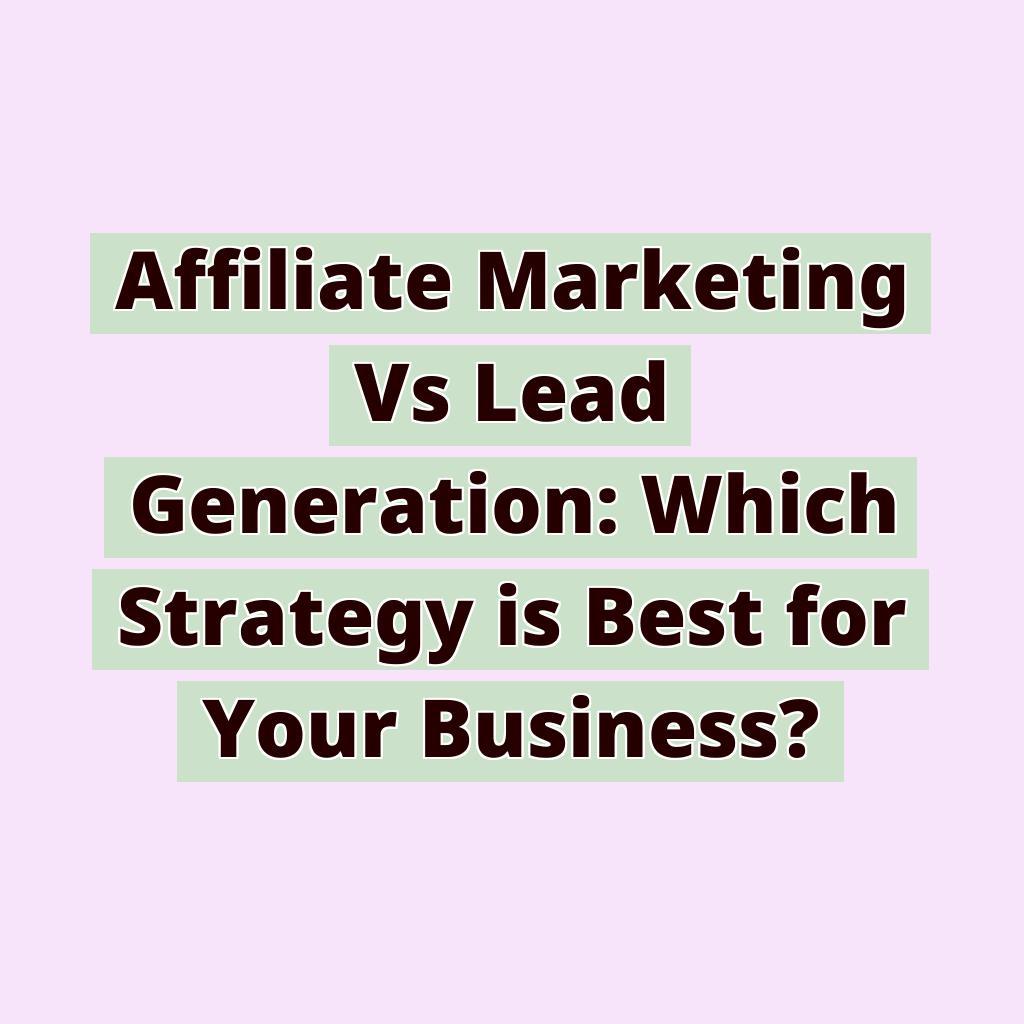In the world of digital marketing, two popular strategies that often come up in discussions are affiliate marketing and lead generation. Both are effective ways to generate revenue and grow your business, but they differ in their approach and execution. In this blog post, I will compare and contrast affiliate marketing and lead generation to help you decide which strategy is best suited for your business.
What is Affiliate Marketing?
Affiliate marketing is a performance-based marketing strategy where businesses pay affiliates a commission for driving traffic or sales to their website. Affiliates can be individuals or companies that promote products or services through various channels such as websites, social media, and email marketing. When a customer makes a purchase through an affiliate link, the affiliate earns a commission.
One of the key advantages of affiliate marketing is that it is a cost-effective way to reach a larger audience without having to invest in traditional advertising. It allows businesses to tap into the networks of affiliates and leverage their influence to drive sales. Additionally, affiliate marketing can help improve brand visibility and credibility through endorsements by trusted affiliates.
What is Lead Generation?
Lead generation, on the other hand, focuses on attracting and converting prospects into potential customers. It involves collecting contact information from leads who have expressed interest in a product or service. Businesses use various marketing tactics such as content marketing, email campaigns, and social media ads to capture leads and nurture them through the sales funnel.
One of the main benefits of lead generation is that it allows businesses to build relationships with potential customers and guide them towards making a purchase decision. By providing valuable content and personalized interactions, businesses can establish trust with leads and increase the chances of conversion. Lead generation is also a measurable strategy, making it easier to track and optimize your marketing efforts.
Affiliate Marketing Pros and Cons
Pros:
- Cost-effective way to reach a larger audience.
- Leverage affiliate networks to drive sales.
- Improve brand visibility and credibility through endorsements.
Cons:
- Lack of control over how affiliates promote your products.
- Commission costs can add up.
- Potential for fraudulent activities by unethical affiliates.
Lead Generation Pros and Cons
Pros:
- Build relationships and trust with potential customers.
- Guide leads through the sales funnel with personalized interactions.
- Measurable strategy for tracking and optimizing marketing efforts.
Cons:
- Requires ongoing effort to nurture leads.
- Can be time-consuming to generate qualified leads.
- Competitive landscape with other businesses vying for the same leads.

Which Strategy is Best for Your Business?
The decision between affiliate marketing and lead generation ultimately depends on your business goals, target audience, and resources available. If you are looking to reach a wider audience and drive sales through partnerships with affiliates, affiliate marketing may be the right choice for you. However, if building relationships with potential customers and guiding them through the sales funnel is your priority, lead generation could be more beneficial.
Consider the following factors when choosing the best strategy for your business:
- Budget: Evaluate the costs associated with both affiliate marketing and lead generation to determine which aligns with your budget constraints.
- Target Audience: Understand your target audience’s preferences and behaviors to choose a strategy that resonates with them.
- Resources: Consider the time, manpower, and expertise required to implement and manage either affiliate marketing or lead generation effectively.
The Bottom Line
In conclusion, both affiliate marketing and lead generation have their unique advantages and drawbacks. To determine which strategy is best for your business, evaluate your goals, target audience, and resources carefully. It may also be beneficial to test both strategies and analyze the results to see which one yields better outcomes for your business. Remember that digital marketing is not one-size-fits-all, and what works for one business may not necessarily work for another. Choose the strategy that aligns with your business objectives and adapt it as needed to achieve success.
